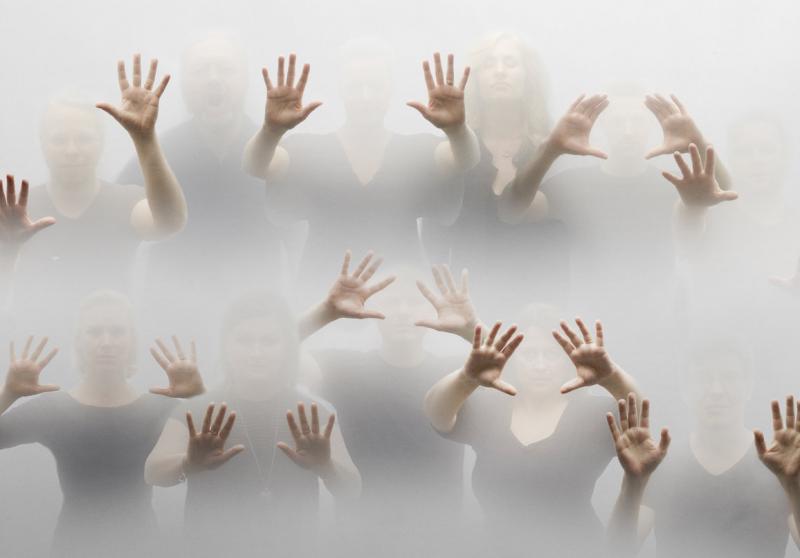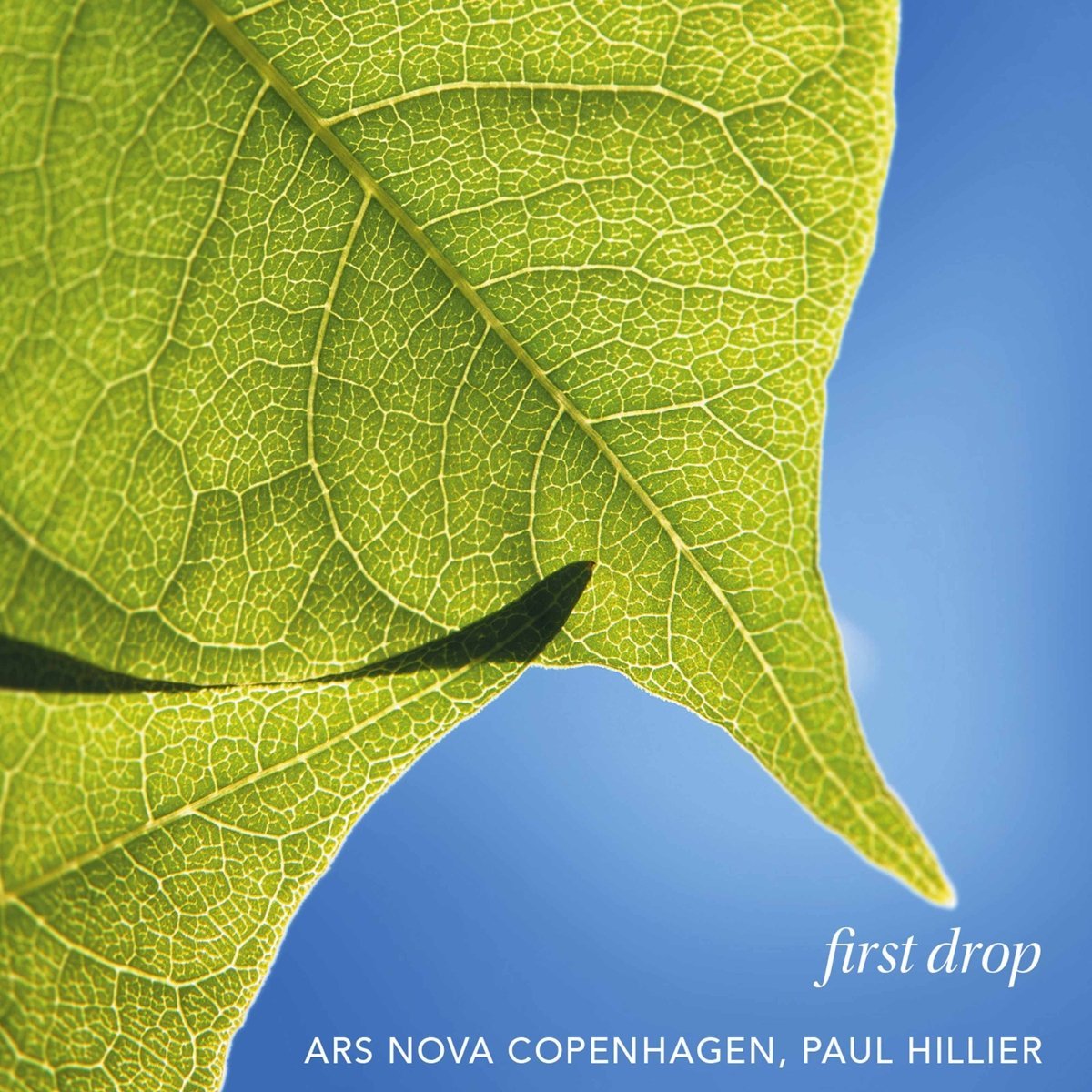Classical CDs Weekly: Leonid Desyatnikov, Dimitar Nenov, Ars Nova Copenhagen | reviews, news & interviews
Classical CDs Weekly: Leonid Desyatnikov, Dimitar Nenov, Ars Nova Copenhagen
Classical CDs Weekly: Leonid Desyatnikov, Dimitar Nenov, Ars Nova Copenhagen
Fascinating discoveries from Russia and Bulgaria, plus a winning choral disc from Denmark

 Leonid Desyatnikov: Sketches to Sunset, Russian Seasons Roman Mints (violin), Brno Philharmonic Orchestra, Lithuanian Chamber Orchestra, both conducted by Philip Chizhevsky (Quartz)
Leonid Desyatnikov: Sketches to Sunset, Russian Seasons Roman Mints (violin), Brno Philharmonic Orchestra, Lithuanian Chamber Orchestra, both conducted by Philip Chizhevsky (Quartz)
Violinist Roman Mints writes of discovering Leonid Desyatnikov’s music in the 1990s, hearing rumours of a gifted figure “who practically rolled billiard balls around the table while he composed”. Shortly afterwards, Mints ended up being asked to give the Russian premiere of Desyatnikov’s Sketches to Sunset, a 1992 orchestral suite based on an extended film score. It's extraordinarily vivid, entertaining music, showcasing this composer’s ability to be “serious and wicked at the same time”. So a restrained, chilly opening suddenly melts into a short tango called “Death in Venice”, opening with the theme from Mahler’s Adagietto blasted out on solo trombone. Much of what follows is incredibly entertaining and will amuse anyone who's ever smiled at Shostakovich’s version of Tea for Two. Desyatnikov can also plumb the depths too; movements like “Absalom’s Death” are unbearably beautiful. A further reason to love this work is the inclusion of a flexatone in the penultimate section, and listen out for the Arvo Pärt references in the closing minutes. I loved this piece. You will too, and it's terrifically performed by Mints, pianist Alexey Goribol and Philip Chizhevsky’s responsive, well-recorded Brno Philharmonic Orchestra.
Chizhevsky conducts the coupling too, though this time with the Lithuanian Chamber Orchestra, Mints now teamed with soprano Yana Ivanilova in Desyatnikov's Russian Seasons. Originally written for Gidon Kremer, its 12 short movements are based on Russian folk melodies and poetry, three allotted per season. Again, it's an intoxicating mixture of extroversion and anguish, the earthier moments sounding very Stravinskian. Several of the texts are blackly comic, the “Fasting Song” offering a vision of death where the body gets consumed by worms while the soul goes off to “suffer and repent.” Listen out for the orchestra’s unexpected choral contribution in the final seconds, before the downbeat, very Russian end. Ivanilova is superb, and Mints’s playing is spiky and seductive by turns. Start your Desyatnikov collection here.
 Dimitar Nenov: Piano Concerto, Ballade No 2 Ivo Varbanov (piano), Royal Scottish National Orchestra/Emil Tabakov (Hyperion)
Dimitar Nenov: Piano Concerto, Ballade No 2 Ivo Varbanov (piano), Royal Scottish National Orchestra/Emil Tabakov (Hyperion)
That the Bulgarian composer Dimitar Nenov’s vast Piano Concerto exists at all is something of a miracle; the handwritten score and parts were transcribed for this first recording at the instigation of pianist Ivo Varbanov. Plus there's the wonder of how Nenov actually found the time and energy to compose the work in between his other activities. A genuine polymath, Nenov was a noted piano virtuoso and an influential teacher. He was also an academic who was in charge of music programming for Bulgarian national radio, having spent several years working as an architect. That Nenov is undervalued today is down to political spite and sheer bad luck: the communist regime in post-war Bulgaria viewed him as ideologically suspect, compounded by Nenov’s reluctance to compose music in support of the state. His perceived cosmopolitanism was condemned in a Soviet music journal by no less than Khachaturian. Nenov’s Bulgarian radio recordings were wiped, his personal archive "cleansed". Political rehabilitation came too late, and he died prematurely in 1953. Wow. But, I hear you cry, is his music any good? A good entry point is this disc’s coupling, the posthumously premiered Ballade No 2. A colourful large-scale work influenced by Bulgarian folk song, it's lavishly orchestrated and packed with killer tunes. You'd happily pay to hear it live.
Nenov’s epic, craggy Piano Concerto is an extraordinary work, containing huge swathes of music which genuinely sound like nothing you've ever heard. Take the rapturous solo string passage five minutes after the opening, or the stark trombone theme which opens the piece. Folk influences are assimilated in a very personal, modernistic way, and the piano writing shimmers and sparkles as much as it deafens; the slow movement's quiet, improvisatory beginning is marvellous. A large-scale finale really does tie up the loose ends, the clangorous ending not unlike the coda of Prokofiev’s Scythian Suite. And, despite the concerto’s 44-minute time-span, there's not a dud moment; it's tempting to conclude that Nenov’s architectural training left him with a shrewd understanding of musical structure. Ivo Varbanov isn't fazed by Nenov’s terrifying technical demands, and the veteran Bulgarian conductor Emil Tabokov draws incisive, muscular playing from the Royal Scottish National Orchestra. And how cheering that such uncompromising repertoire is still being released by major labels: buy this and hope that Varbanov will exhume more of Nenov’s music.
 First Drop Ars Nova Copenhagen/Paul Hillier (Cantaloupe Music)
First Drop Ars Nova Copenhagen/Paul Hillier (Cantaloupe Music)
This anthology’s title is found in the Ralph Waldo Emerson couplet, set, rather wonderfully, by Howard Skempton; how fitting that a master of musical understatement should create such magic with two lines of poetry. One hopes that Skempton's star is in the ascendant. He's also responsible for the opening track Rise up my love, another euphonious, tonal gem which manages to sound utterly fresh and devoid of cliché, sung by Paul Hillier’s crack Danish choir with thrilling ease. This is some of the most technically brilliant choral singing you'll hear on disc: witness the glissandi in Michael Gordon’s He Saw a Skull. It sounds as if the tape’s been manipulated, so seamless is the effect. Similarly arresting is Hillier's vocal arrangement of Steve Reich’s Clapping Music, the claps replaced by tiny melodic fragments sung by male voices. It's a pleasing companion piece to Reich’s Know What Is Above You, its quartet of three sopranos plus alto accompanied by tuned drums. An exuberant chunk of Terry Riley ends the disc, an enchanting selection of first recordings, mostly by composers known to Hillier.
Euro-minimalist Louis Andriessen’s Un beau baiser is surprisingly soft-edged, a charming setting of a poem addressed to George Sand. David Lang’s when we were children is an alphabetically ordered selection of translations of an overused Biblical quotation. There's music by Gabriel Jackson and a glorious sequence of motets by the Argentinian composer Pablo Ortiz. Instrumental relief comes in the shape of organist Christopher Bowers-Broadbent, here playing an engaging transcription of Kevin Volans’ Walking Song.
Explore topics
Share this article
The future of Arts Journalism
You can stop theartsdesk.com closing!
We urgently need financing to survive. Our fundraising drive has thus far raised £49,000 but we need to reach £100,000 or we will be forced to close. Please contribute here: https://gofund.me/c3f6033d
And if you can forward this information to anyone who might assist, we’d be grateful.

Subscribe to theartsdesk.com
Thank you for continuing to read our work on theartsdesk.com. For unlimited access to every article in its entirety, including our archive of more than 15,000 pieces, we're asking for £5 per month or £40 per year. We feel it's a very good deal, and hope you do too.
To take a subscription now simply click here.
And if you're looking for that extra gift for a friend or family member, why not treat them to a theartsdesk.com gift subscription?
more Classical music
 Monteverdi Choir, ORR, Heras-Casado, St Martin-in-the-Fields review - flames of joy and sorrow
First-rate soloists, choir and orchestra unite in a blazing Mozart Requiem
Monteverdi Choir, ORR, Heras-Casado, St Martin-in-the-Fields review - flames of joy and sorrow
First-rate soloists, choir and orchestra unite in a blazing Mozart Requiem
 Cho, LSO, Pappano, Barbican review - finely-focused stormy weather
Chameleonic Seong-Jin Cho is a match for the fine-tuning of the LSO’s Chief Conductor
Cho, LSO, Pappano, Barbican review - finely-focused stormy weather
Chameleonic Seong-Jin Cho is a match for the fine-tuning of the LSO’s Chief Conductor
 Classical CDs: Shrouds, silhouettes and superstition
Cello concertos, choral collections and a stunning tribute to a contemporary giant
Classical CDs: Shrouds, silhouettes and superstition
Cello concertos, choral collections and a stunning tribute to a contemporary giant
 Appl, Levickis, Wigmore Hall review - fun to the fore in cabaret and show songs
A relaxed evening of light-hearted fare, with the accordion offering unusual colours
Appl, Levickis, Wigmore Hall review - fun to the fore in cabaret and show songs
A relaxed evening of light-hearted fare, with the accordion offering unusual colours
 Lammermuir Festival 2025, Part 2 review - from the soaringly sublime to the zoologically ridiculous
Bigger than ever, and the quality remains astonishingly high
Lammermuir Festival 2025, Part 2 review - from the soaringly sublime to the zoologically ridiculous
Bigger than ever, and the quality remains astonishingly high
 BBC Proms: Ehnes, Sinfonia of London, Wilson review - aspects of love
Sensuous Ravel, and bittersweet Bernstein, on an amorous evening
BBC Proms: Ehnes, Sinfonia of London, Wilson review - aspects of love
Sensuous Ravel, and bittersweet Bernstein, on an amorous evening
 Presteigne Festival 2025 review - new music is centre stage in the Welsh Marches
Music by 30 living composers, with Eleanor Alberga topping the bill
Presteigne Festival 2025 review - new music is centre stage in the Welsh Marches
Music by 30 living composers, with Eleanor Alberga topping the bill
 Lammermuir Festival 2025 review - music with soul from the heart of East Lothian
Baroque splendour, and chamber-ensemble drama, amid history-haunted lands
Lammermuir Festival 2025 review - music with soul from the heart of East Lothian
Baroque splendour, and chamber-ensemble drama, amid history-haunted lands
 BBC Proms: Steinbacher, RPO, Petrenko / Sternath, BBCSO, Oramo review - double-bill mixed bag
Young pianist shines in Grieg but Bliss’s portentous cantata disappoints
BBC Proms: Steinbacher, RPO, Petrenko / Sternath, BBCSO, Oramo review - double-bill mixed bag
Young pianist shines in Grieg but Bliss’s portentous cantata disappoints
 theartsdesk at the Lahti Sibelius Festival - early epics by the Finnish master in context
Finnish heroes meet their Austro-German counterparts in breathtaking interpretations
theartsdesk at the Lahti Sibelius Festival - early epics by the Finnish master in context
Finnish heroes meet their Austro-German counterparts in breathtaking interpretations
 Classical CDs: Sleigh rides, pancakes and cigars
Two big boxes, plus new music for brass and a pair of clarinet concertos
Classical CDs: Sleigh rides, pancakes and cigars
Two big boxes, plus new music for brass and a pair of clarinet concertos
 Waley-Cohen, Manchester Camerata, Pether, Whitworth Art Gallery, Manchester review - premiere of no ordinary violin concerto
Images of maternal care inspired by Hepworth and played in a gallery setting
Waley-Cohen, Manchester Camerata, Pether, Whitworth Art Gallery, Manchester review - premiere of no ordinary violin concerto
Images of maternal care inspired by Hepworth and played in a gallery setting

Add comment